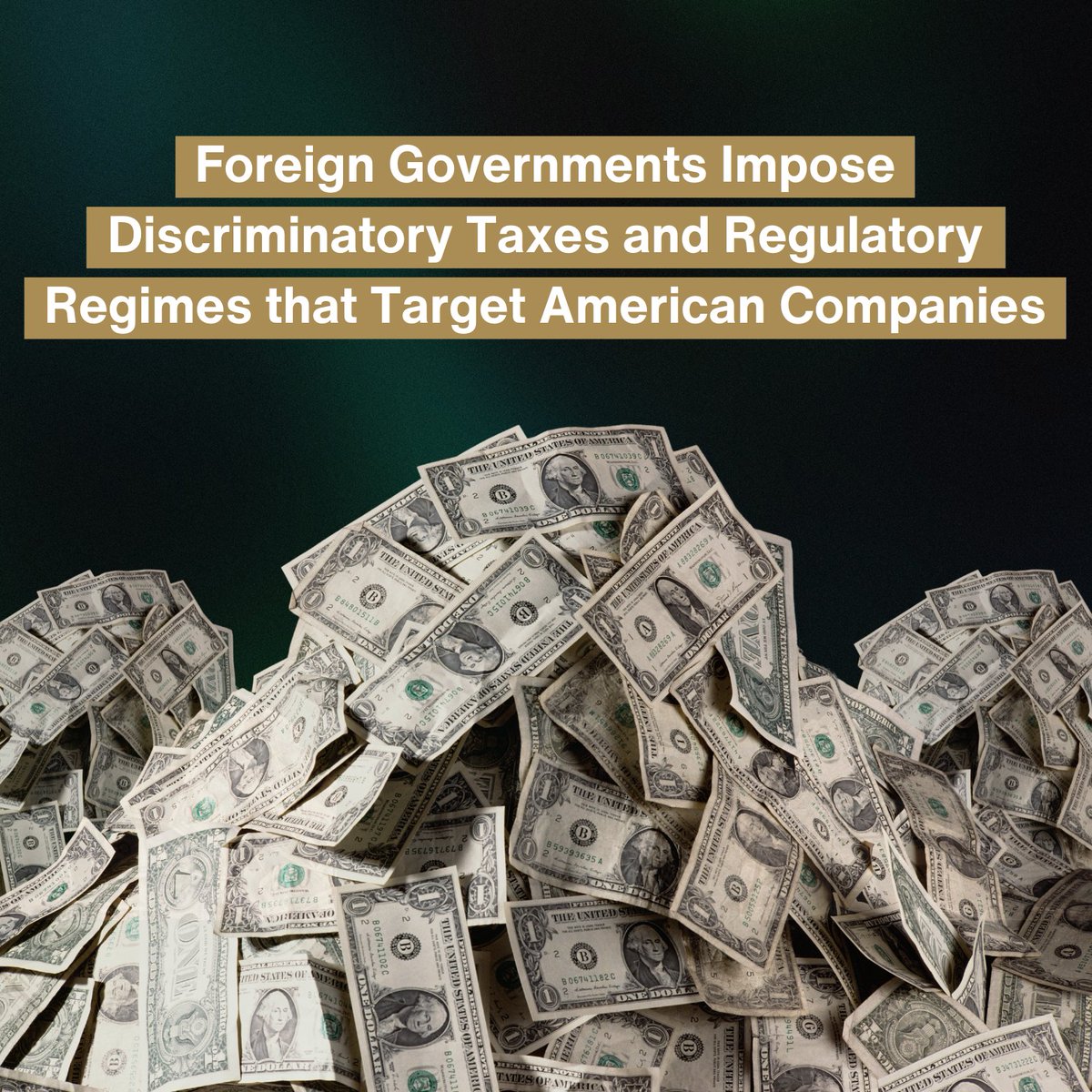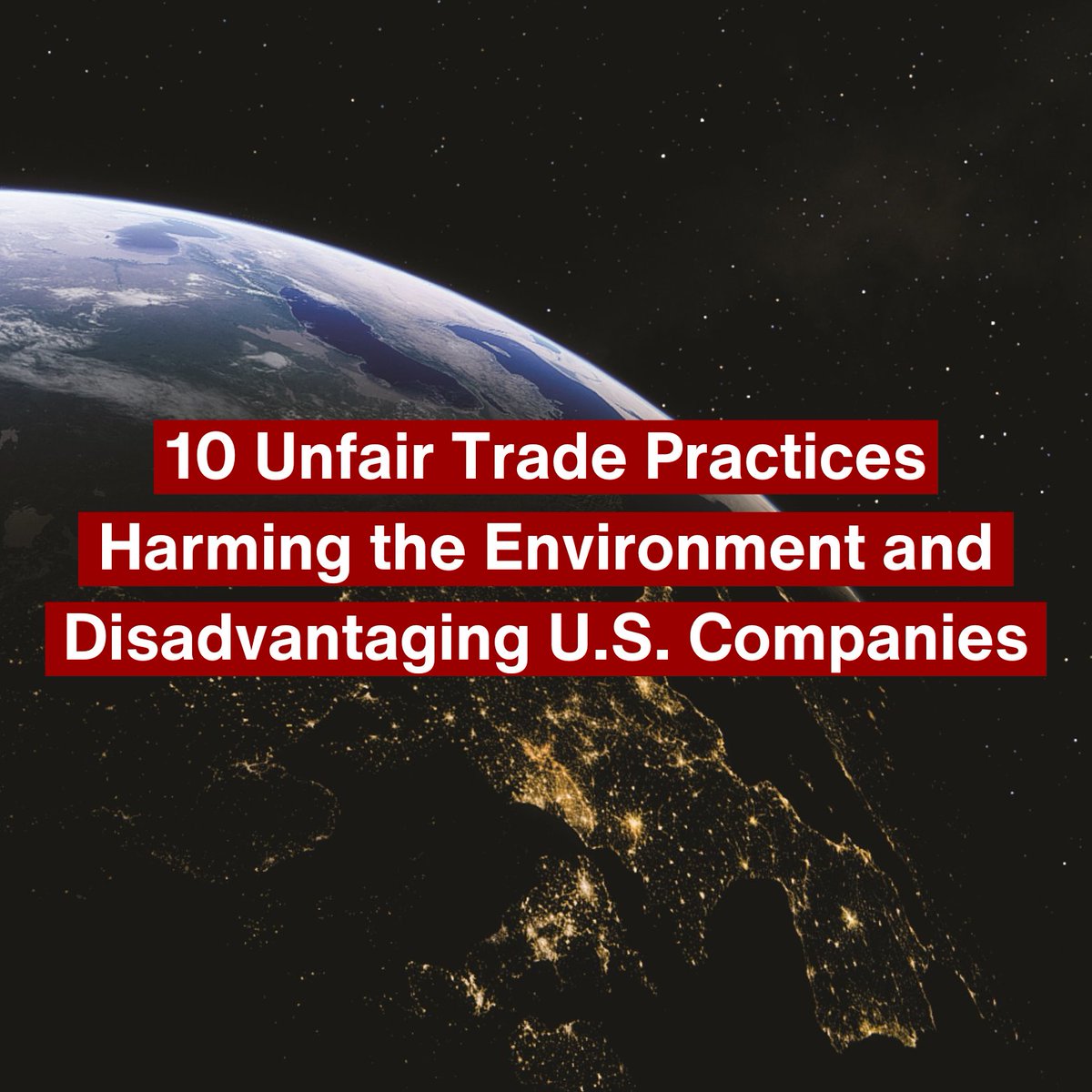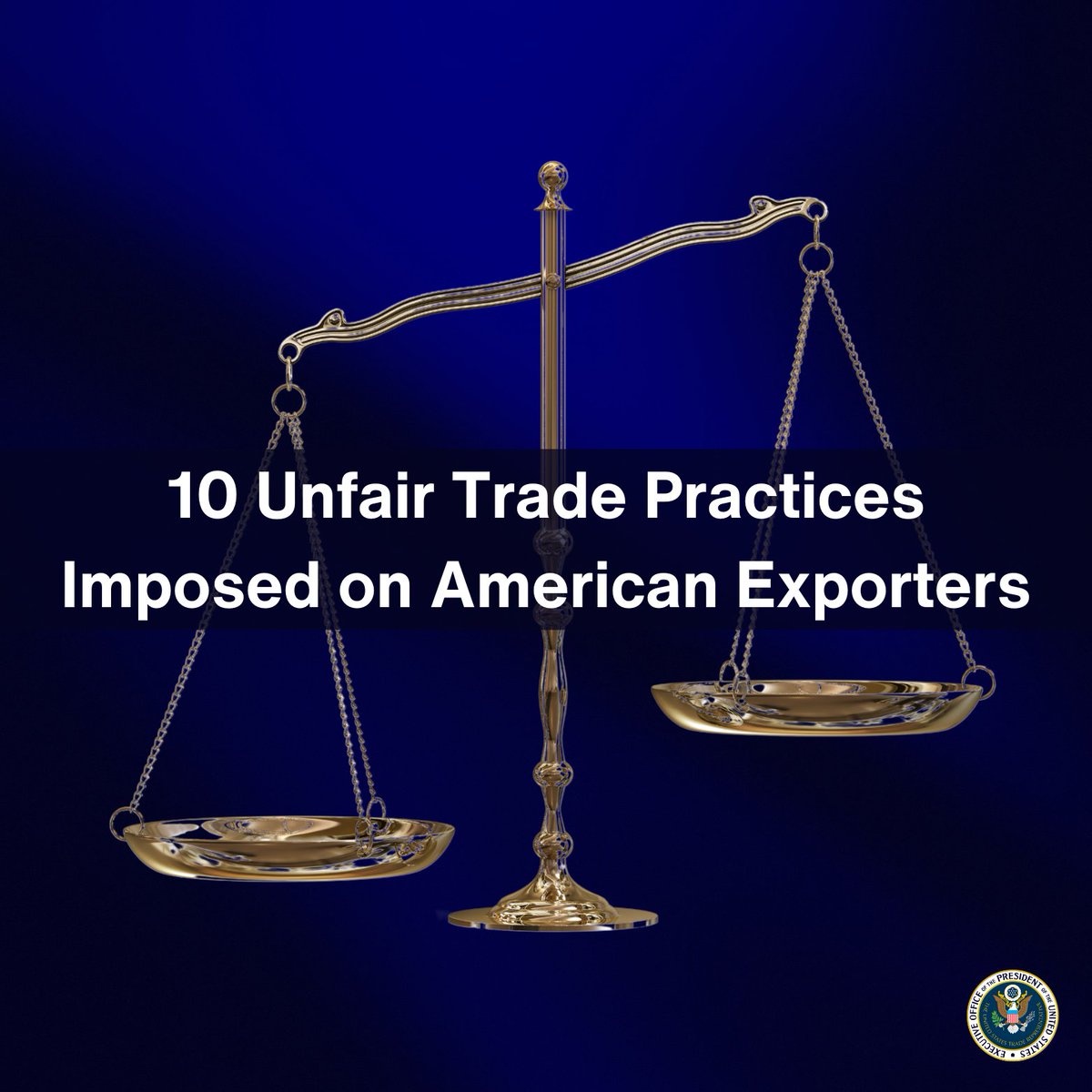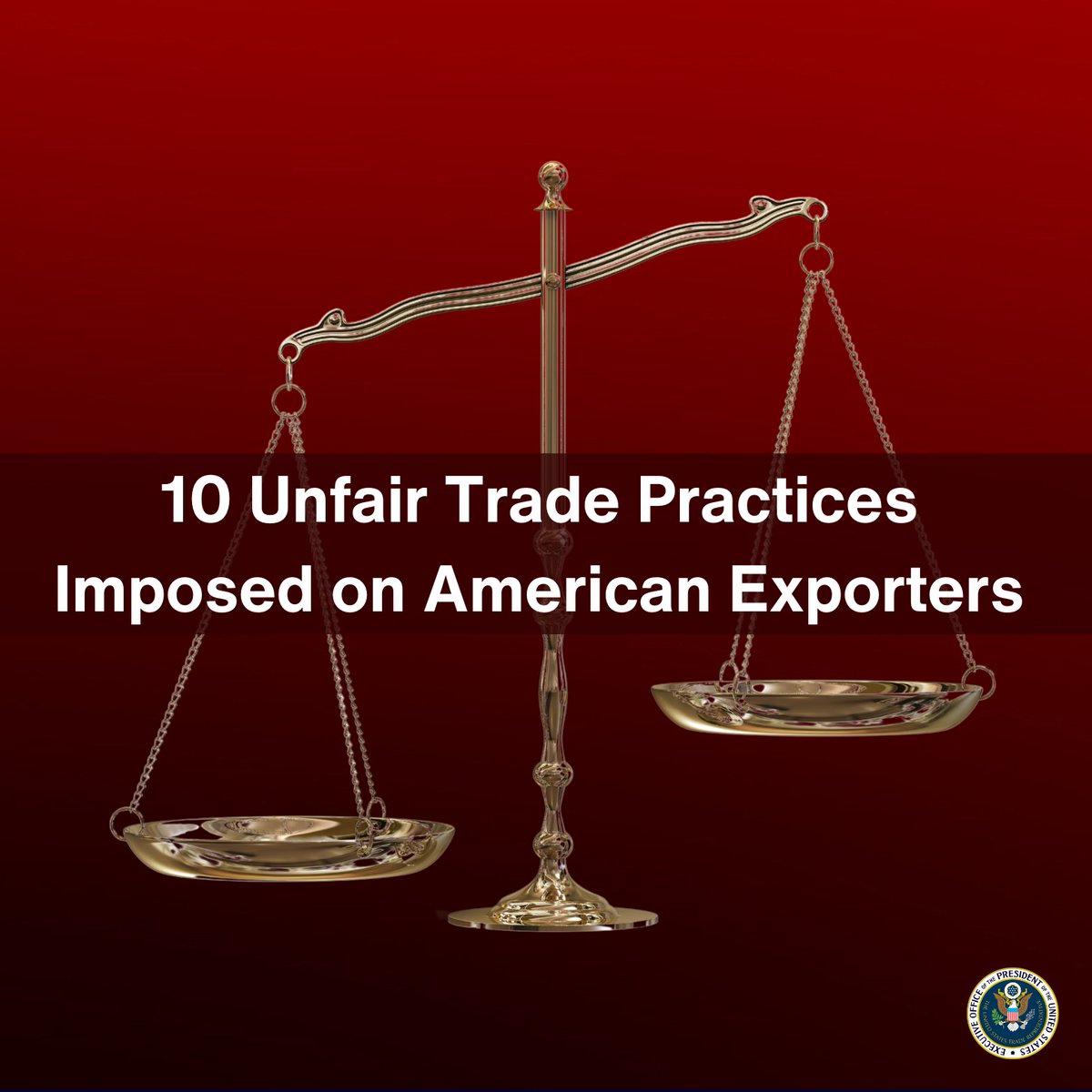
Pursuing trade and economic policies that put the American economy, the American worker, and our national security first.
How to get URL link on X (Twitter) App


 2/10: France imposes a 4% DST on gross revenues of companies meeting global and local revenue thresholds for providing certain digital services in France.
2/10: France imposes a 4% DST on gross revenues of companies meeting global and local revenue thresholds for providing certain digital services in France.
 1/10: Deforestation in Brazil reached a 15-year high in 2021, driven by weak environmental regulations and lax law enforcement, giving Brazilian ranchers an unfair advantage in agricultural production.
1/10: Deforestation in Brazil reached a 15-year high in 2021, driven by weak environmental regulations and lax law enforcement, giving Brazilian ranchers an unfair advantage in agricultural production.
 2/10: India bans imports of U.S. ethanol for fuel use. Similarly, Thailand restricts imports of fuel ethanol, requiring approval and issuance permits, and hasn't approved an import permit for fuel ethanol since 2005.
2/10: India bans imports of U.S. ethanol for fuel use. Similarly, Thailand restricts imports of fuel ethanol, requiring approval and issuance permits, and hasn't approved an import permit for fuel ethanol since 2005.
 2/10: The U.S. shrimp industry noted the negative impacts of subsidized low-cost, farm-raised shrimp imports from Brazil, China, Ecuador, India, Thailand, and Vietnam.
2/10: The U.S. shrimp industry noted the negative impacts of subsidized low-cost, farm-raised shrimp imports from Brazil, China, Ecuador, India, Thailand, and Vietnam.